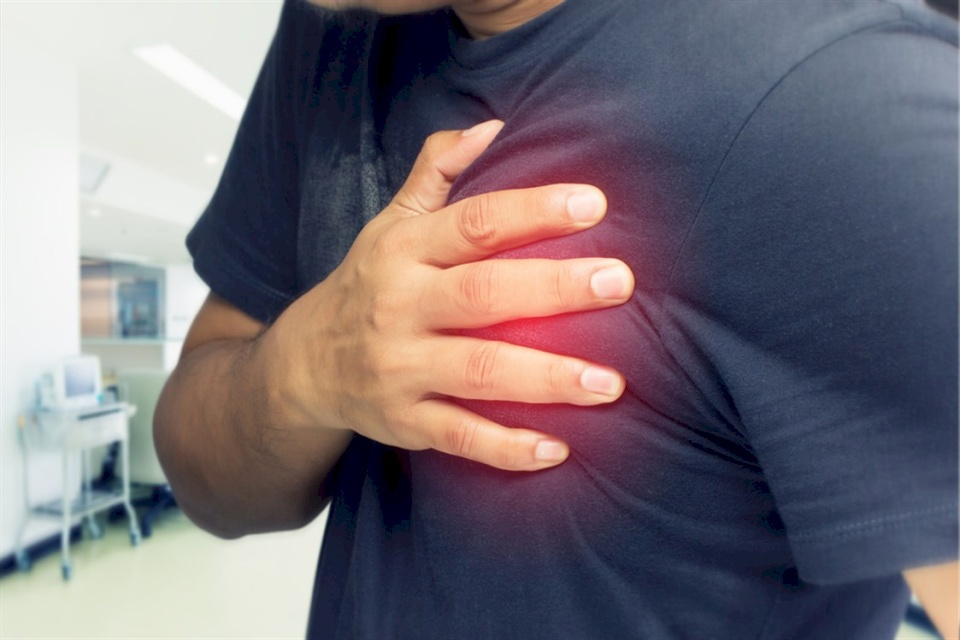
What is the difference between a stroke and a heart attack?
SadaNews - Heart attacks occur when the blood flow to the heart is interrupted, which can lead to damage to the heart muscle. On the other hand, cardiac arrest is more severe and involves the sudden cessation of the heartbeat, leading to rapid loss of consciousness and potential death. Immediate intervention, including cardiopulmonary resuscitation (CPR) and the use of an automated external defibrillator (AED), is critical in cases of cardiac arrest to restore heart function and prevent irreversible damage, according to the Times of India.
Heart Attack
A heart attack, or myocardial infarction, occurs when the blood flow to a part of the heart is interrupted. This obstruction — usually caused by a clot in one of the coronary arteries — means that the heart muscle does not get the oxygen it needs. If not treated quickly, parts of the heart muscle may die.
Cardiac Arrest
Cardiac arrest, however, is a sudden stop of the heart’s beating entirely. Blood pumping ceases, cutting off oxygen flow to the brain or body. Within seconds, a person loses consciousness. If the heart is not restarted, death follows quickly.
A report from Harvard University explains, "A heart attack is a [mechanical] problem, whereas cardiac arrest is an electrical problem. Cardiac arrest occurs when the heart's electrical system malfunctions, causing it to beat rapidly and chaotically — or to stop completely. With no blood flowing to the brain, lungs, and other organs, the person gasps or stops breathing and becomes unconscious within seconds."
Causes of Heart Attack
Coronary Artery Disease (CAD) is the leading cause. Plaques build up in the arteries, narrowing them over time. A sudden blood clot can completely block an already narrowed artery due to plaques. Coronary artery spasms can also impede blood flow, although this is less common. Risk factors include:
• High cholesterol
• Smoking
• Diabetes
• High blood pressure
• Stress
• Poor nutrition and lack of exercise.
Causes of Cardiac Arrest
Arrhythmia, particularly lethal ventricular fibrillation (VFib), is a common cause of cardiac arrest. In ventricular fibrillation, the heart's electrical signals fire randomly, halting effective pumping. Cardiac arrest can also occur due to:
• Heart attacks
• Severe irregular heartbeats
• Heart failure
• Shock (such as electric shock or blunt force)
• Drug overdose
• Drowning
• Genetic conditions.
Symptoms of Heart Attack
Heart attack symptoms are often gradual, sometimes subtle, and often misunderstood — especially in women, including the following:
• Chest pain or pressure (may feel like squeezing, fullness, or pain)
• Pain that spreads to the left arm or jaw, neck, or back
• Shortness of breath
• Cold sweat
• Nausea or vomiting
• Dizziness
• Fatigue.
Note: Some people, especially those with diabetes and women, may experience what is referred to as a "silent" heart attack — where symptoms are mild or so unusual that they go completely unnoticed.
Symptoms of Cardiac Arrest
Symptoms of cardiac arrest are usually sudden and shocking. They include:
• Sudden collapse
• Loss of pulse
• Cessation of breathing
• Loss of consciousness
• Before collapsing: some may feel chest pain, dizziness, or rapid heartbeat.
Important Tips
If someone is having a heart attack, call emergency services immediately. They should stay calm and loosen tight clothing. If the person is not allergic, taking a 325 mg aspirin can help thin the blood.
The key is the quicker blood flow is restored, the larger the portion of heart muscle that can be saved.
If someone is experiencing cardiac arrest, call emergency services immediately. Start CPR (chest compressions only if no one nearby is trained to perform mouth-to-mouth breathing). An AED can be used if available. They are designed for the general public — providing voice instructions during the rescue process. Ensure to continue CPR until help arrives or the person regains consciousness. Every second counts as it saves brain cells from dying due to lack of oxygen supply to the brain.
The Importance of Distinguishing Between the Two
Misunderstanding the difference between a heart attack and cardiac arrest can delay receiving the appropriate help. When it comes to the heart, every minute counts, as heart attacks can be serious, and cardiac arrest is deadly unless treated immediately. Knowing the difference can make a difference, and thus it is important first to gently correct information when hearing someone mixing them up, and second, to enroll in training courses to save and resuscitate victims of heart attacks and strokes whenever possible.

Birdwatching Tourism: Pleasure, Excitement, and Unexpected Scientific Discoveries

Dopamine Boosting and Attention Weakness: Beware of Digital Drugs Inside Your Phone

انطلقت منذ 20 عاماً.. ما لا تعرفه عن منصة "روبولوكس"

India Offers Tax Breaks Until 2047 to Attract Cloud Computing Giants

Do You Write To-Do Lists by Hand or on Your Phone? 9 Traits Distinguishing the First Group

Developments in the Health Condition of Actress Susan Badr

How Artificial Intelligence Steals Our Faces and Our Money?

